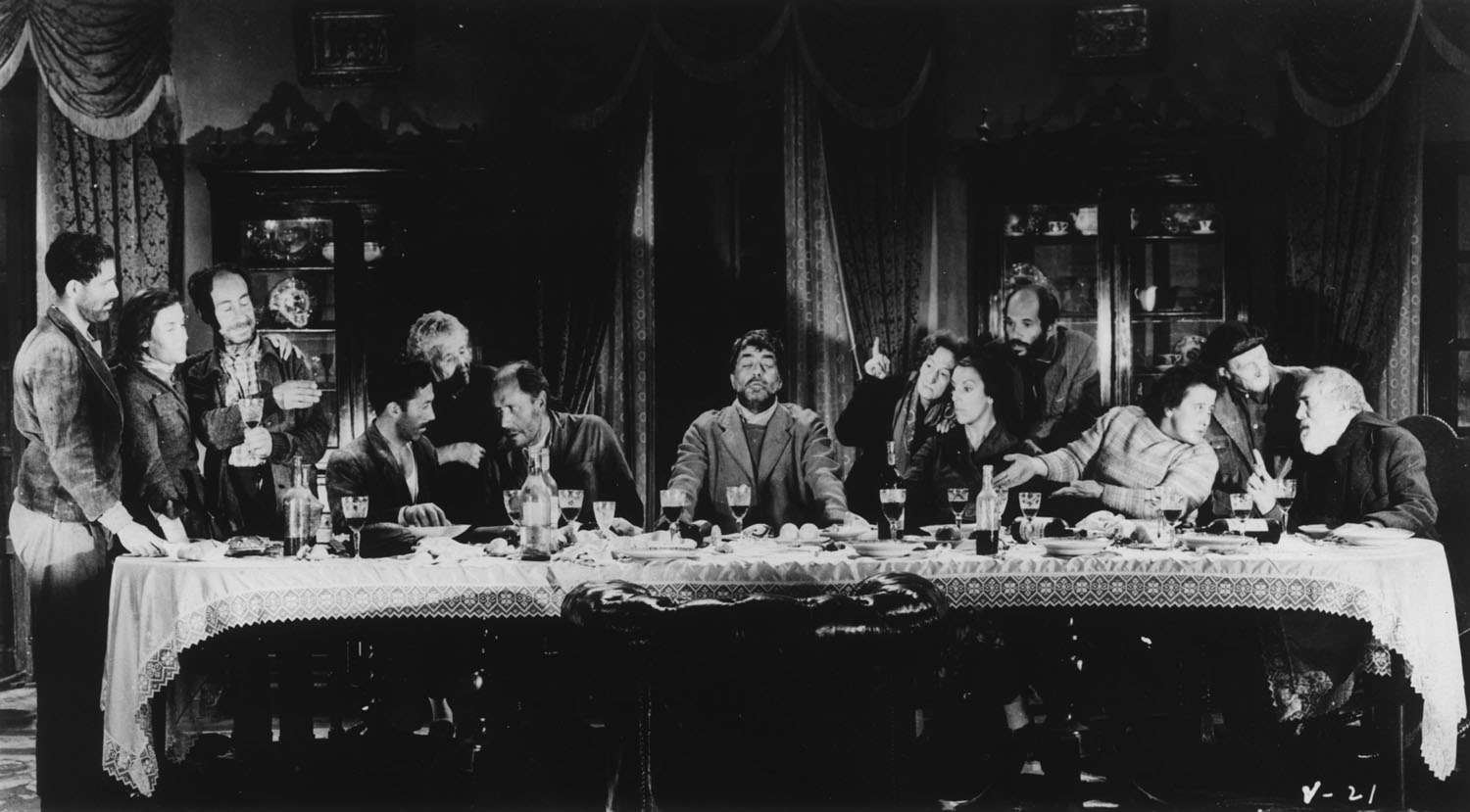
If The Exterminating Angel, The Discreet Charm of the Bourgeoisie and The Phantom of Liberty give you the impression that Bunuel hated the rich, watch Viridiana and you’ll realise that he also hated the poor.
Joking aside, Viridiana is a great film with a rather pessimistic view of humanity. Viridiana is a pious nun at the beginning of the film, carrying with her a crucifix and a crown of thorns, and sleeping on the floor. After seeing her uncle’s suicide, for which she’s in a way responsible, and leaving the convent, she attempts to pay for her guilt and do good for the world by giving shelter, food and work to 13 of the most wretched beggars in town, only to be betrayed by them. The paupers’ ingratitude is a warning of well-intended but misplaced charity, or, depending on how you look at Viridiana’s action, a mockery of religion, of the character’s piousness and her carelessly thought-out plan to help others only to ultimately seek her own redemption.
Above all, it’s about our inability to change the world. There’s a scene in which Jorge, Viridiana’s cousin, saves an exhausted dog tied to a cart, without noticing a dog tied to another cart in the opposite direction. You can try, you can save one, but there’s always another cart with another dog tied to it. Viridiana’s not only unable to help the poor in her town, she’s also unable to change the ones she helps.
And yet, the film is not depressing. It’s saved from being depressing, by Bunuel’s sense of humour, or, as Roger Ebert has put it, his “cheerfully sardonic view of human nature”.
A great film.
Luis Bunuel’s now another favourite of mine.
_______________________________________
I’ve just come across this criticism of the film:
“…beyond its immediate social context Viridiana is mercilessly pessimistic concerning human nature, and much of the film’s bleakness lies in its lack of dimensionality. For instance, it’s difficult to feel satisfied by her comeuppance when Viridiana remains a thoroughly noble character. She never expresses or betrays self-righteous or vainglorious motivations for her charity, and so the climactic bacchanal that shatters her belief in selflessness comes across as undeserved. Inversely, Buñuel portrays the poor as completely irredeemable: they possess no positive qualities, while the negative ones—rudeness, filth, belligerence, disrespect for property and sexual propriety—fester when not held in check by an authority’s supervision. Indeed, at a slant Viridiana contains a conservative message. According to the film human beings are inherently perverted, lascivious, greedy, mean, and destructive.”I don’t agree.
1, I don’t think that the negative qualities mentioned, rudeness, filth, belligerence, and disrespect for sexual propriety, are unfair—the people Viridiana helps are not the poor, the working class, but homeless beggars. The point is that she can’t change them just because she provides them with shelter and food.
2, the rape attempt of Viridiana by 2 of the beggars is, without doubt, the ultimate betrayal of her kindness. However, because the author of the essay mentions “disrespect for property” among the beggars’ negative qualities that “fester when not held in check by an authority’s supervision”, to criticise the film for “lack of dimensionality”, I would argue that it makes perfect sense for them to break into the house and have a party. It’s not right, but psychologically it is plausible and understandable that they would take advantage of being alone to have a look and then use things they can never afford and otherwise can never touch. At the beginning, they (or at least most of them) mean no harm. The problem is when they become drunk and get carried away. Then come frustration, envy, a strong sense of injustice, and hatred, which make them turn them on the people who have helped them because Viridiana and Jorge would always be above them.
To me, the film doesn’t appear to send the message that “human beings are inherently perverted, lascivious, greedy, mean, and destructive”. It’s more like an attack on Spanish institutions, which reduce people to that level.
3, another criticism is that “the climactic bacchanal that shatters her belief in selflessness comes across as undeserved”. There is no doubt that Viridiana is a noble character. However, her main shortcomings are naïveté and misguided charity; and she doesn’t seem to think or plan carefully about how to help the beggars. Note that she has been warned about the leper, who turns out to be one of the 2 rapists, but she refuses to listen.
a fine analysis... don't know much about Bunuel, but it seems he deals with reality, not fantasy, as most films do...
ReplyDeleteThank you.
DeleteI've been thinking about what you wrote. That's an interesting way of looking at it, considering that Bunuel's a surrealist.
That doesn't contradict your remark. Bunuel used surrealism to poke fun at social mores and human behaviour, and at the absurdities of life. He saw everything clearly and didn't create some kind of feelgood fantasy.